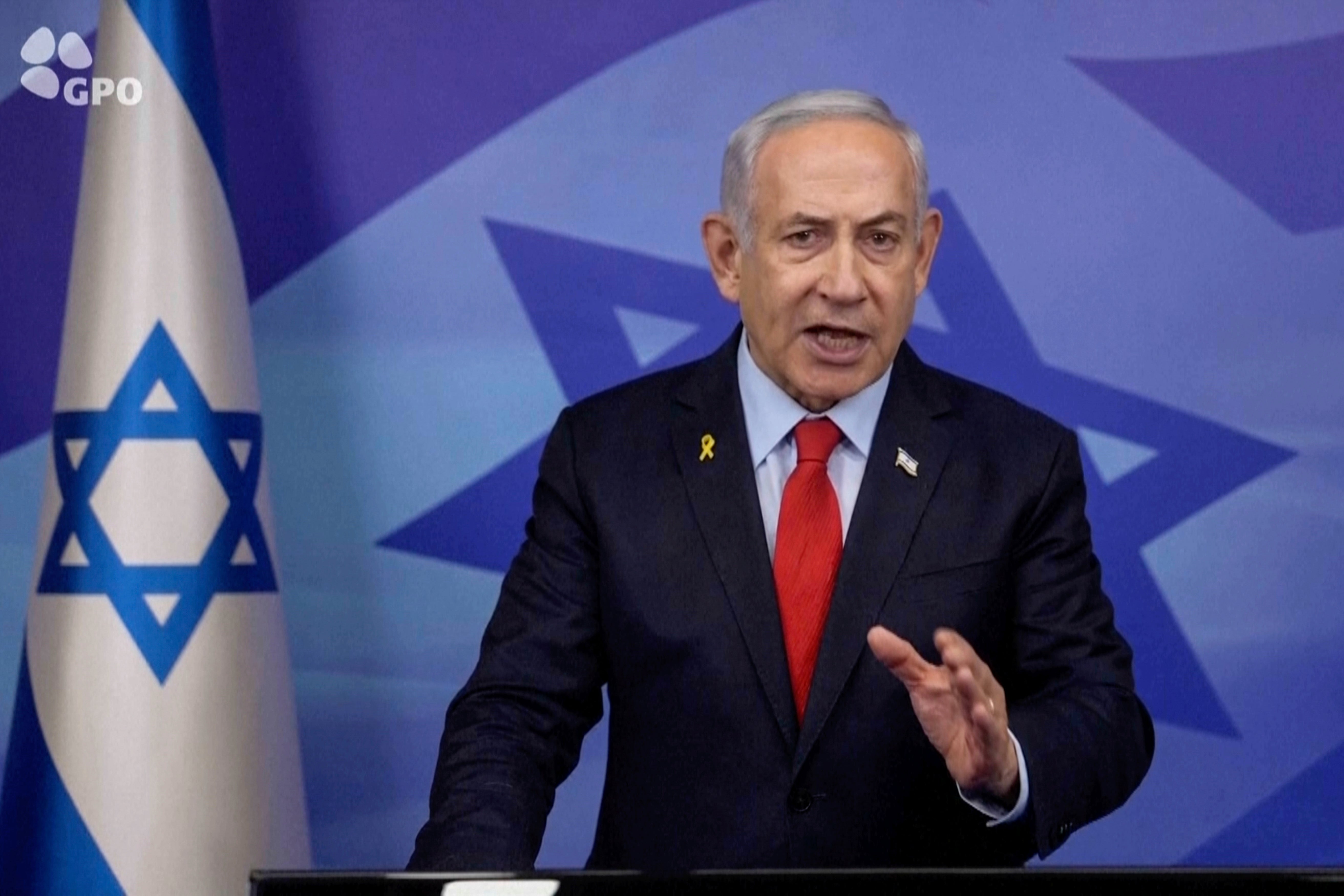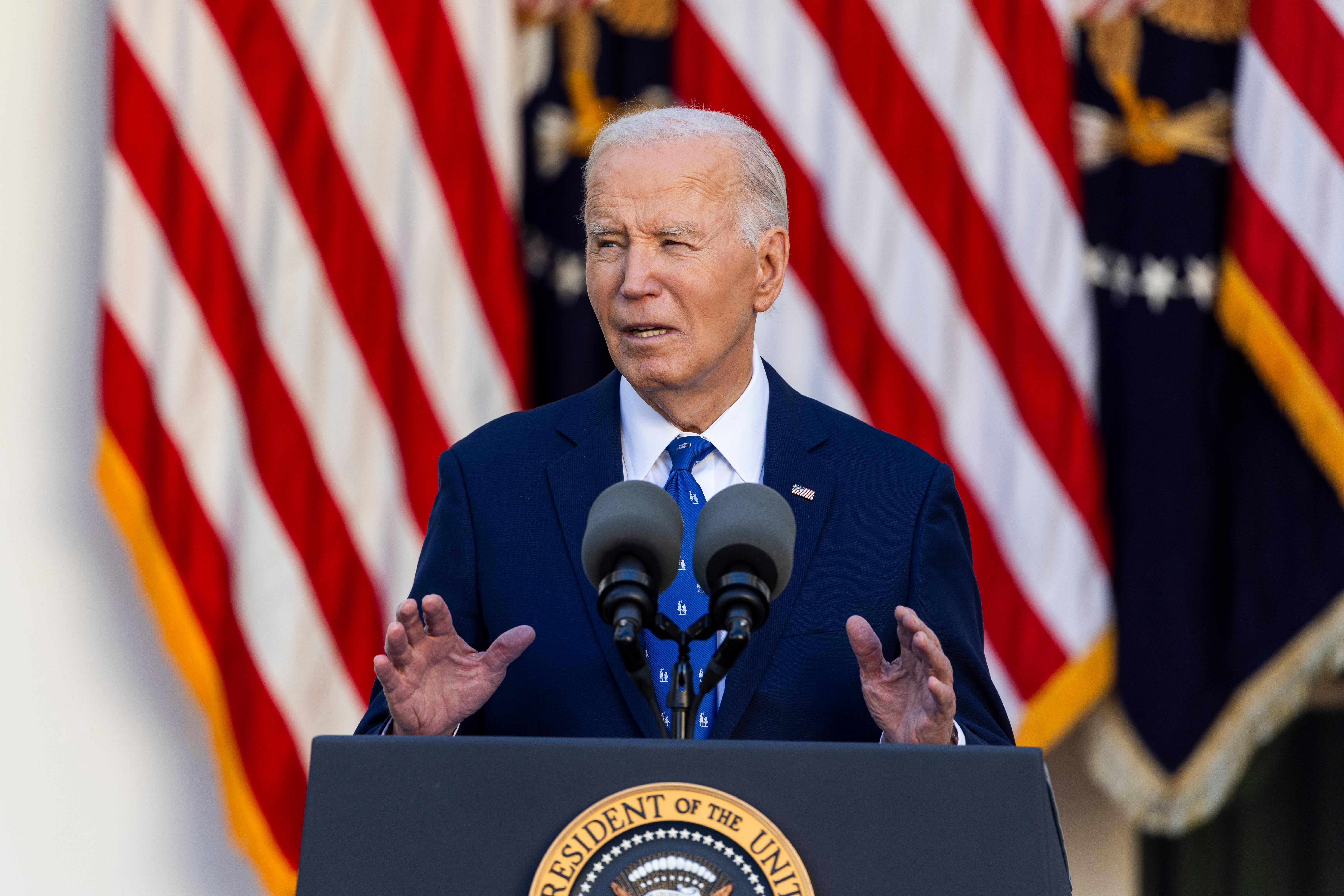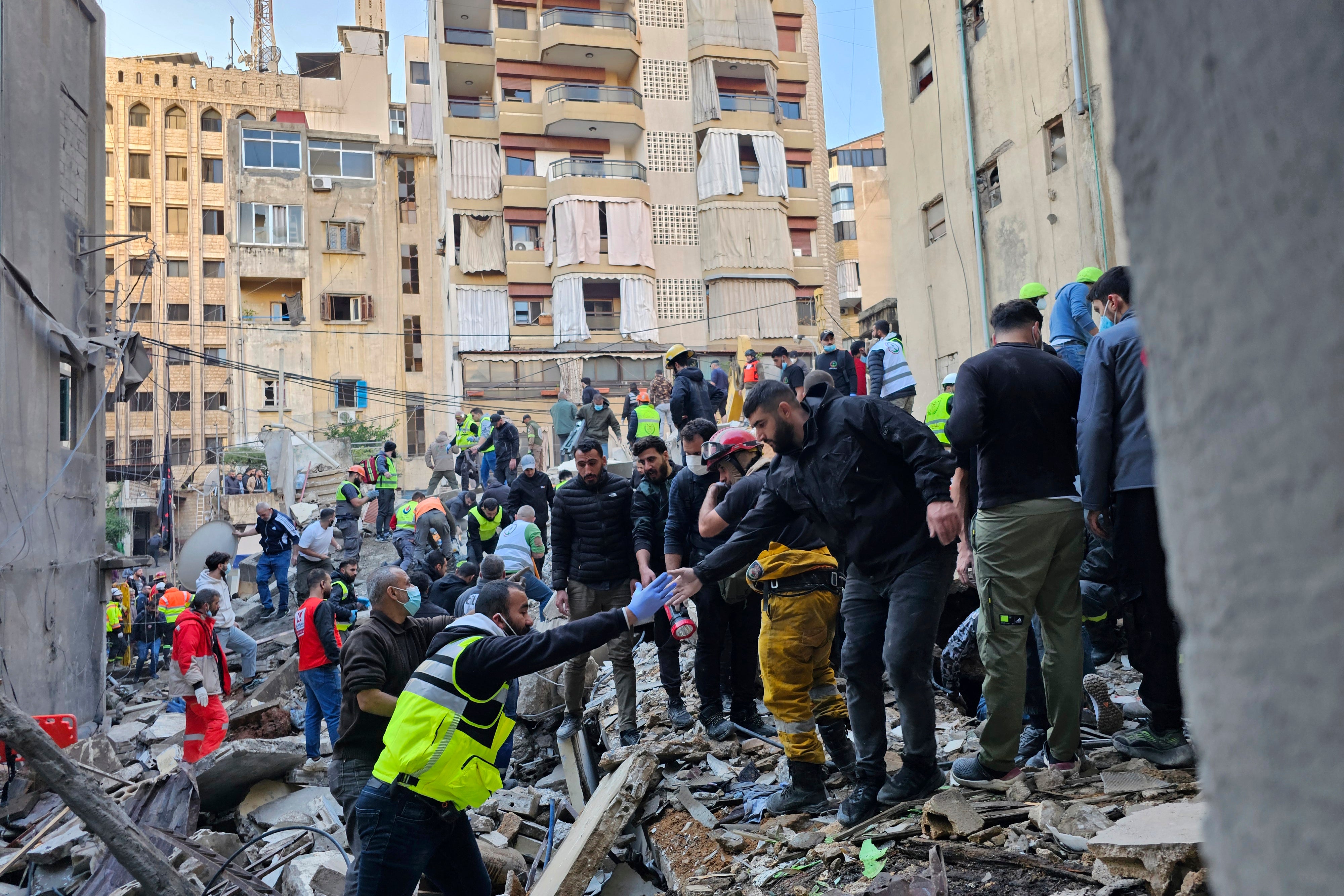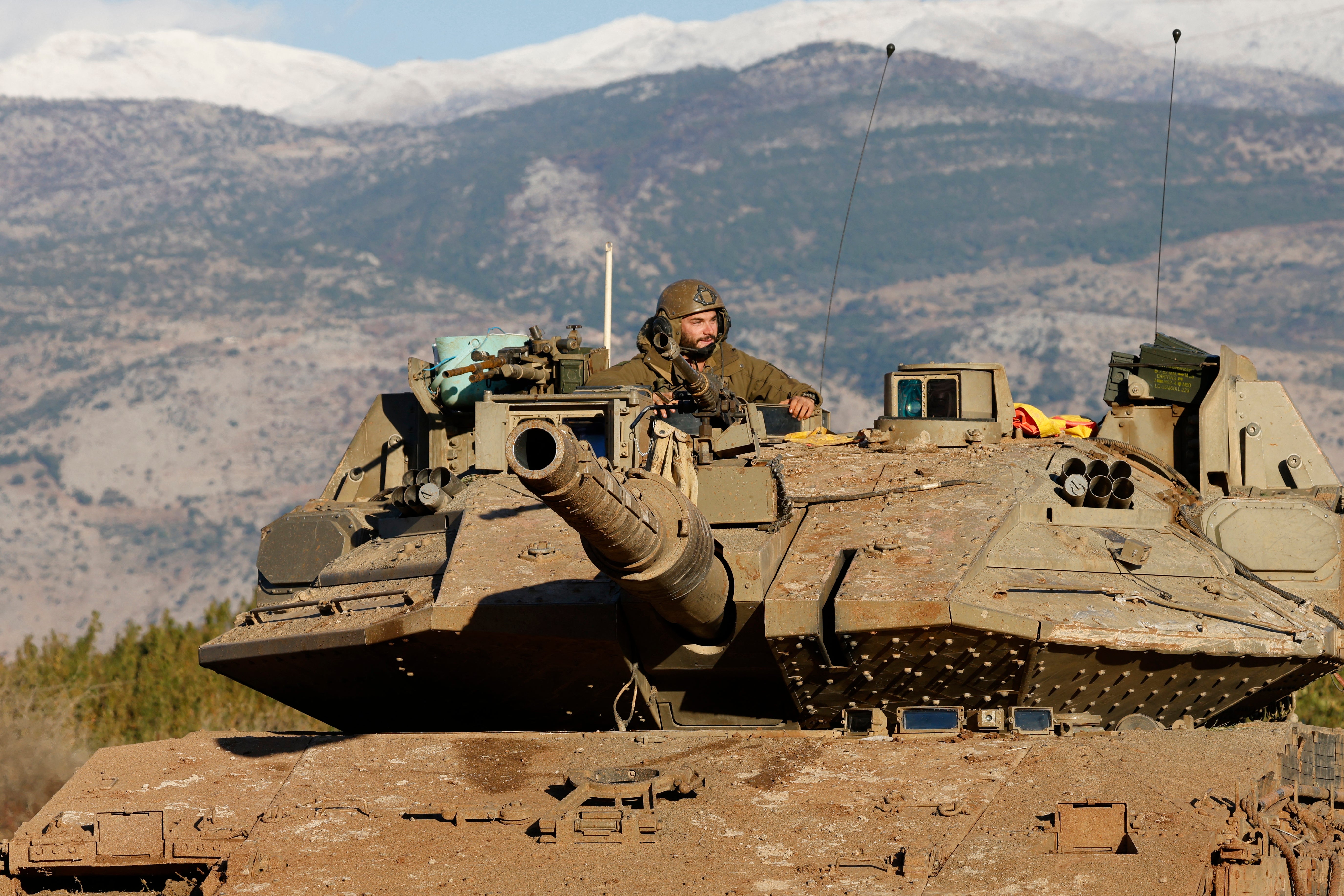Israel and Hezbollah agree US-brokered ceasefire deal in major breakthrough for region
The truce, which came into effect at 4am on Wednesday, has been welcomed by Keir Starmer and Joe Biden
A US-backed ceasefire has begun between Israel and the Lebanese militant group Hezbollah, marking a major breakthrough in the devastating conflict that has gripped the Middle East.
For more than a year, near-daily rocket fire, ferocious airstrikes, and on-the-ground battles between Israeli forces and the militant group have claimed the lives of thousands of people, nearly all in Lebanon.
In the tense hours before the truce came into effect Israeli airstrikes continued to pound the Lebanese capital Beirut where the Israeli military issued a record number of evacuation orders. Rocket sirens blared in northern Israel.
US president Joe Biden, who brokered the deal and spoke both to Israel and Lebanon’s leaders shortly after it was announced, said the ceasefire was designed to be permanent.
Fighting came to a stop at 4am local time (2am GMT), although Israel warned local residents in southern Lebanon not to return home immediately.

Under the terms of the agreement, Israel will gradually withdraw its forces over a period of 60 days with the Lebanese army then set to control territory near its border to ensure that Hezbollah does not rebuild its infrastructure there, Mr Biden said. “Civilians on both sides will soon be able to safely return to their communities,” he added.
The US is expected to lead a five-country monitoring committee to enforce the truce, while the UN peacekeeping force in the south of Lebanon (Unifil) would be reinforced.
“Over the coming days, the United States will make another push with Turkey, Egypt, Qatar, Israel and others, to achieve a ceasefire in Gaza with a hostage release,” Mr Biden added.
Israeli prime minister Benjamin Netanyahu’s office said the plan was approved by a 10 to 1 margin during a late-night cabinet meeting and thanked “the US involvement in achieving the ceasefire agreement in Lebanon”.
“Israel maintains its right to act against any threat to its security,” it added.
Lebanon’s caretaker prime minister, Najib Mikati, welcomed the deal to end hostilities between Hezbollah and Israel, according to a statement issued by his office. The statement said Mr Mikati had spoken with Mr Biden.

Mr Biden and French president Emmanuel Macron issued a joint statement in which they said that the deal will provide the conditions needed for a return to calm in the country, and that France and the United States would both work to ensure that the ceasefire is fully implemented.
Sir Keir Starmer welcomed the announcement of a ceasefire, calling it “long overdue” and urged for it to be the start of “a long-term, sustainable peace in the Middle East”.
The British PM added: “We must see immediate progress towards a ceasefire deal in Gaza, the release of all hostages and the removal of restrictions on desperately needed humanitarian aid.”
Earlier, Mr Netanyahu, who has faced sharp resistance from hardliners in Israel, defended the plan for a ceasefire, saying Israel had inflicted heavy damage on Hezbollah.
He said Israel could now focus its efforts on Hamas militants in Gaza along with his top security concern, Iran and vowed to strike Hezbollah hard if it violates the expected deal.

“We have turned the tables,” he said, adding: “The ground in Beirut is shaking.”
Hezbollah said it accepted the proposal, but a senior official from the group said on Tuesday that it had not seen the agreement in its final form.
“After reviewing the agreement signed by the enemy government, we will see if there is a match between what we stated and what was agreed upon by the Lebanese officials,” said Mahmoud Qamati, deputy chair of Hezbollah’s political council.
“We want an end to the aggression, of course, but not at the expense of the sovereignty of the state [of Lebanon],” he said. “Any violation of sovereignty is refused.”
Rana Sahili, a media spokesperson for Hezbollah, told The Independent that the militant group does “not trust the Israelis”. “The countries that support [the Israelis] must provide guarantees,” Ms Sahili added.
If successfully enforced, the ceasefire would bring to a halt ferocious fighting that has pushed the Middle East to the brink of an all-out regional war, threatening to pit Israel and its Western allies against Iran and its proxies. It has also plunged Lebanon into an “unprecedented” humanitarian crisis according to the United Nations.
The Lebanese health ministry says nearly 3,800 people have been killed in Lebanon in the 13 months since fighting erupted and the nearly two months since Israel launched a ground invasion into Lebanon. At least 73 Israeli soldiers have been killed in northern Israel, in the Golan Heights, and in combat in southern Lebanon, according to Israeli authorities.

The past few weeks have been the deadliest and most devastating for Lebanon in decades, the United Nations said this week. The UN’s humanitarian office said that Israel had “dramatically intensified” its airstrikes and ground incursions, resulting in an average of 250 deaths per week in November alone.
The conflict has displaced more than a million people, according to the Lebanese health ministry, including half a million who have fled to war-ravaged Syria.
Black smoke rose above the skies of Beirut in the hours leading up to the truce as Israel launched its most intense wave of attacks yet on the bustling centre and a record number of evacuation orders. Civilians fleeing the centre of the city sent photos to The Independent showing panicked families stuck in long traffic jams.
The Israeli military said it had also struck dozens of sites in southern parts of Lebanon over several hours, and claimed to have killed a commander of Hezbollah in a ground attack. At one point it released footage of its air force striking 20 targets in two minutes across Beirut. In total, 24 people were killed across the country, according to local Lebanese authorities.
For months global pressure has been mounting for a ceasefire in the conflict, which has threatened to spread across the Middle East region.

In the lead up European Union’s top diplomat Josep Borrell urged Israel to back the ceasefire deal, which he said had all the necessary security guarantees for Israel. “No more excuses. No more additional requests,” Mr Borrell said.
G7 nations meeting in Italy on Tuesday also issued a statement pressing Israel to accept the ceasefire, saying: “Now is the time to conclude a diplomatic settlement.” In a draft statement at the end of a two-day meeting in Italy, the G7 ministers urged Israel to facilitate the delivery of humanitarian aid to Palestinians and condemned the increasing settler violence in the West Bank.
Mr Netanyahu will still have to contend with growing criticism from hardliners in Israel. His own far-right national security minister Itamar Ben-Gvir claimed on social-media platform X (formerly Twitter) that the agreement does not ensure the return of Israelis to their homes in the country’s north, and that the Lebanese army does not have the ability to overcome Hezbollah.
“In order to leave Lebanon, we must have our own security belt,” Mr Ben-Gvir said. Israeli mayors in the northern towns and communities of Israel also denounced the deal, telling The Independent it amounted to “surrender”.
Mr Netanyahu in his earlier televised speech defended the deal saying Israel had achieved its aims in Lebanon as “a year later, it is not the same Hezbollah”.
“We have pushed them back decades. We eliminated [Hezbollah chief Hassan] Nasrallah, the axis of the axis. We have taken out the organisation’s top leadership, we have destroyed most of their rockets and missiles... infrastructure they had been building for years,” he added.
He cited three reasons for backing the agreement – these include “focusing on the Iranian threat”, allowing Israeli forces to refresh, and separating the conflict from the war in Gaza, further isolating militant group Hamas.
Israel’s defence minister, Israel Katz, said the nation would show “zero tolerance” towards any infraction, as Israel demanded that the UN enforce the terms of the agreement.
However, the prospect of a ceasefire agreement between Israel and Hezbollah without a similar deal with Hamas in Gaza left Palestinians feeling abandoned and fearful that Israel would now turn its focus squarely on the territory.
“It showed Gaza is an orphan, with no support and no mercy from the unjust world,” said Abdel-Ghani, a father of five who only gave his first name.
Join our commenting forum
Join thought-provoking conversations, follow other Independent readers and see their replies
Comments
Bookmark popover
Removed from bookmarks